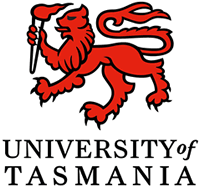Dr Kaylene Young
No more applications being accepted
Funded PhD Project (Students Worldwide)
About the Project
Multiple sclerosis (MS) is an autoimmune and neurodegenerative disease that results in oligodendrocyte death and central nervous system (CNS) demyelination. Current treatments reduce the ability of peripheral immune cells to enter the CNS, however, there is a significant need for therapeutics that enhance the survival of myelinating oligodendrocytes and promote the generation of new oligodendrocytes from oligodendrocyte progenitor and neural stem cells.
Kaylene Young’s Glial Research Team (https://www.menzies.utas.edu.au/research/diseases-and-health-issues/research-groups/glial-research-team-young-group) forms part of the MS Research Flagship at the Menzies Institute for Medical Research, which combines laboratory, clinical, public health, genetics and health economics research, to expedite the translation and implementation of MS research outcomes. The selected PhD student will work in the laboratory and use human induced pluripotent stem cells, CRISPR/Cas9 genome editing, cre-lox transgenic technology and preclinical models of demyelination to understand MS pathology and oligodendrocyte cell biology. The aim of this project is to develop a neural repair strategy that can be evaluated through our associated clinical trials pathway. The student will also work in our clinical facility to evaluate the safety and efficacy of a specific transcranial magnetic stimulation protocol for people with MS.
Applicants must:
- have received a Bachelor of Science (Honours) degree or an equivalent qualification in the field of neuroscience, including the completion of a laboratory-based research thesis. Preference will be given to applicants with a first class honours degree.
- Demonstrate their capacity to communicate well in English, apply mathematics in the work-place (including some knowledge of basic statistics), and work collaboratively with others.
TO APPLY:
1) Please apply for a PhD placement via the portal to ensure you are eligible to undertake a PhD at the University of Tasmania (https://www.utas.edu.au/international/studying/courses2/phd-or-research-masters/doctor-of-philosophy-phd)
2) Please apply for the PhD scholarship by sending an email titled "MS PhD Scholarship" to A/Prof Kaylene Young ([Email Address Removed]). Please attach a 1 page cover letter detailing your research experience and suitability to undertake a PhD in this field, and a 2 page CV that includes the contact information for 2 referees.
Applications for this scholarship close on 1st October 2019, as we seek a student who could start on or around 4th November 2019.
If you are interested in undertaking a PhD with our team outside of this time frame, please get in touch and we may be able to support your application for competitive scholarships.
Funding Notes
Applicants must:
- have received a Bachelor of Science (Honours) degree or an equivalent qualification in the field of neuroscience, including the completion of a laboratory-based research thesis. Preference will be given to applicants with a first class honours degree.
- Demonstrate their capacity to communicate well in English, apply mathematics in the work-place (including some knowledge of basic statistics), and work collaboratively with others.
References
Cullen CL, Senesi M, Tang AD, Clutterbuck MT, Auderset L, O'Rourke ME, Rodger J, Young KM (2019). Low-intensity transcranial magnetic stimulation promotes the survival and maturation of newborn oligodendrocytes in the adult mouse brain. Glia 67(8):1462-1477. doi: 10.1002/glia.23620.
Pepper RE, Pitman KA, Cullen CL, Young KM (2018). How Do Cells of the Oligodendrocyte Lineage Affect Neuronal Circuits to Influence Motor Function, Memory and Mood? Front Cell Neurosci. 12:399. doi: 10.3389/fncel.2018.00399.

 Continue with Facebook
Continue with Facebook

